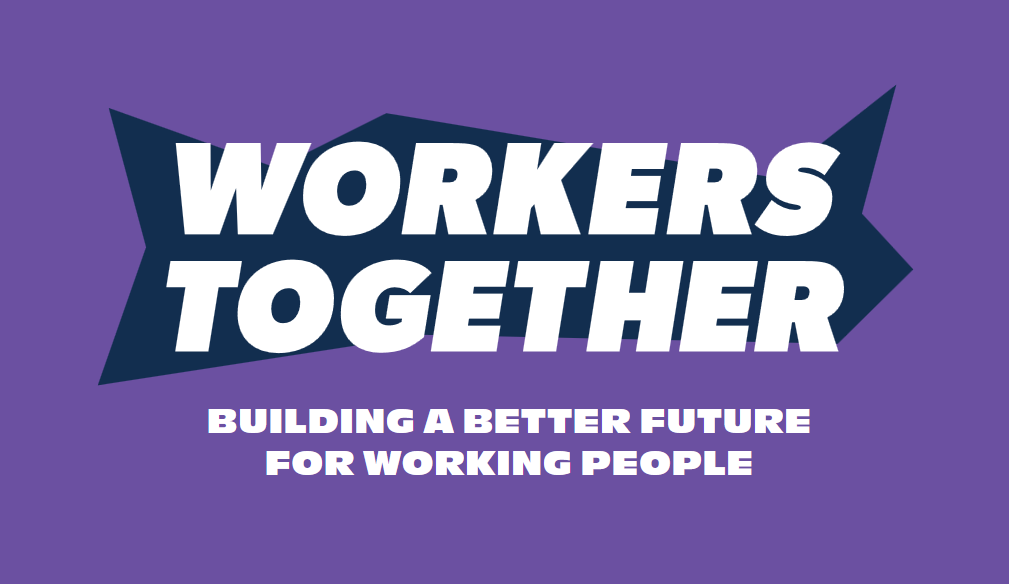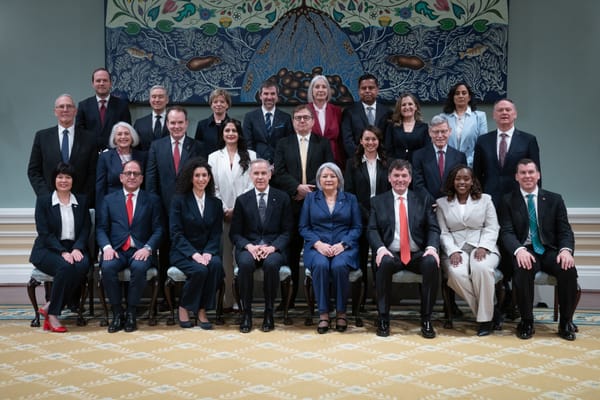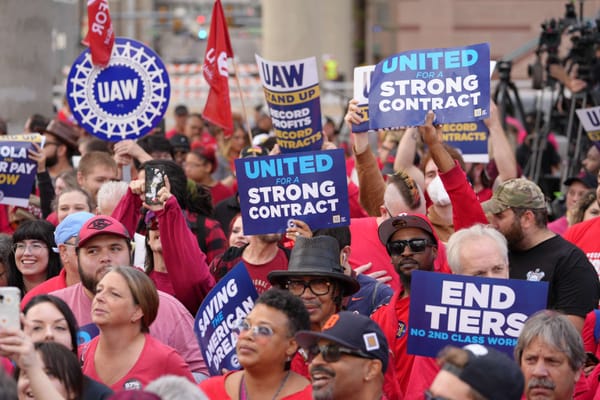
In the past two weeks, workers at two Chapters Indigo stores in Toronto have voted to unionize.
On August 17, workers at the Yorkdale shopping centre Indigo location certified their union, and were then followed on August 25 by workers at Chapters Kennedy Commons in Scarborough. Retail workers at both locations are now members of the United Food and Commercial Workers (UFCW) Local 1006A, one of the largest union locals in Canada.
These two union victories are the latest in a string of union certifications at Chapters Indigo stores across the country. In September 2020, the Mississauga Square One location became the first union shop of Indigo. Seemingly emboldened by the latter, workers in Montreal and Coquitlam, B.C., certified union locals in October. Amid the continued uncertainty of the retail pandemic economy, workers at Chapters in Woodbridge, Ont., then also joined the mega local UFCW 1006A this January.
These six Chapters Indigo union certifications are important wins in the notoriously hard to organize retail sector. The UFCW has now been able to gain a foothold in a giant of retail and online shopping in Canada. Lesley Prince, the union’s director of organizing, told the Toronto Star that workers faced common issues at the newly organized stores and sought union protection to address fairness in wages and benefits, issues of management retaliation and favouritism, as well as input in scheduling and paid sick days.
UFCW 1006A represents workers across a wide variety of workplaces, including food processing, restaurants and hotels, and warehousing and trucking. The international union, of course, also has a long presence in the grocery retail sector, representing workers at Loblaw and its various subsidiaries in Canada. It’s unclear if these latest organizing drives were primarily worker initiated or are the result of a targeted organizing campaign by the union.
According to workers interviewed by the Star — and the union’s press releases — the impacts of COVID-19 in the workplace were a major catalyst for unionization. Retail was one of the hardest hit sectors by the pandemic, as the fits and starts of lockdowns and partial reopenings contributed — along with serious declines in consumer demand — to businesses large and small shedding jobs.
As Rosa Saba at the Toronto Star reported in January, unions were seeing growth in interest in unionization from retail workers. Particularly because non-union workers were far more likely to lose their jobs at the height of the pandemic, collective bargaining, seniority and job protection became that much more appealing.
In many respects, retail remains the quintessential site of “precarious employment.” According to political scientist Leah F. Vosko, precarious jobs are characterized by four features: income and job uncertainty, a lack of control over the labour process, lax regulatory protection and low wages. All of these are strongly present in most of the retail sector, and the pandemic only exacerbated them.
Many workers in retail lack stable weekly hours and therefore face income instability. Others, particularly women, are stuck in part-time work, even when they would prefer full-time hours. The rise of this ‘workload uncertainty’ is the result of the deregulation of working time, which has allowed employers to treat workers with the same “flexibility” as they would any other productive input. “Just-in-time” scheduling encourages employers to buy labour only when it’s needed. For retail workers, this often means three or four hour “peak time” shifts, alongside understaffing during less busy portions of the day to avoid workers having any potential ‘down time’ on the job.
As well, retail and hospitality workers frequently face management intimidation and favouritism, as well as sexism from both employers and customers — especially when tipping is involved. These power imbalances, along with the lack of say over scheduling, were consistently a motivating factor for workers at Indigo seeking unionization. Workers sought a greater degree of control over their lives at work.
When it comes to regulatory protection, workers in retail are some of the least “protected” in the economy. Comparatively low rates of unionization mean that most retail workers can’t access collective bargaining rights and are therefore dependent on often-poorly enforced minimum employment standards laws. Wage theft, unpaid vacation and holiday pay, and other unauthorized deductions are common.
When it comes to health and safety, the pandemic again exposed the absence of sufficient workplace power to ensure adherence to the law and maintain safe workplaces. A lack of paid sick days left too many workers facing the choice between paying rent and staying healthy. On top of this, frontline staff were charged with the additional burden of ensuring customer compliance with public health mandates, such as mask-wearing and social distancing in stores.
For all the celebration of “essential workers,” abuse toward staff has been a common worker complaint throughout the pandemic.
Of course, retail workers also face low wages and incomes across the country. Despite many huge and profitable corporations dominating the sector, low pay is rampant.
As I covered in a previous newsletter, wage growth in retail and hospitality have lagged considerably behind other sectors of the economy. Even as employers complain of labour shortages, wage stagnation or anemic growth have persisted as stores reopen and demand picks up.
UFCW 1006A has achieved first collective bargaining agreements for the workers at Indigo Square One and Chapters in Woodbridge. The first contract for the former was ratified this May, approximately five months after the union was certified. This is important because first collective agreements are notoriously difficult to achieve. Although Canadian employers have much less leeway to frustrate first contract negotiations and exhaust a newly formed union than in the United States, inking the initial contract can nevertheless be an arduous task.
The union’s “highlights” of the first contract suggest that they’ve been able to address many of the issues that motivated the organizing drive. The first contract includes initial wage raises and “minimum wage protection,” which sees workers’ wages raise along with and above the legal minimum; two additional statutory holidays; three annual paid sick days; limits on sanitation duties to address the increased cleaning burden necessitated by the pandemic; and the establishment of a seniority system to eliminate favouritism and unaccountable managerial prerogative.
It appears the UFCW is using the Indigo Square One contract as a precedent to establish pattern bargaining at its other unionized stores. Workers at Woodbridge ratified an agreement with the same key features.
Could new organizing victories at Chapters Indigo represent a union breakthrough in retail?
With only six unionized stores out of 88 under the Chapters-Indigo-Coles brand across Canada, we are far from union saturation at even this one employer. The UFCW obviously has a long way to go before a critical mass of workers at this retail behemoth have collective bargaining rights.
Moreover, navigating a system of labour law that necessitates unions organize and bargain contracts worksite by worksite makes achieving a union majority all the more onerous. Ultimately, some form of broader-based, sectoral bargaining will be necessary to adequately represent workers in fragmented sectors like retail.
Nevertheless, these are important victories to celebrate, and will hopefully encourage similarly situated workers to organize and reach out to unions. With the pandemic’s long-term business impacts on the retail sector still unclear, employers will invariably cry hard times and resist unionization. Even the most “progressive” employers pull the same stunts.
Having an industry in the process of restructuring is all the more reason for workers to have a seat at the table.







